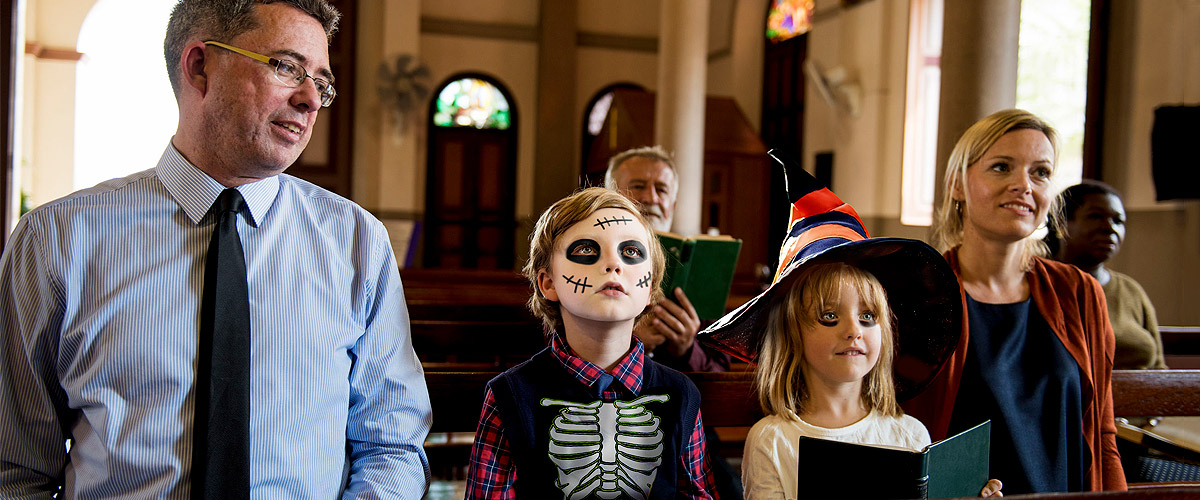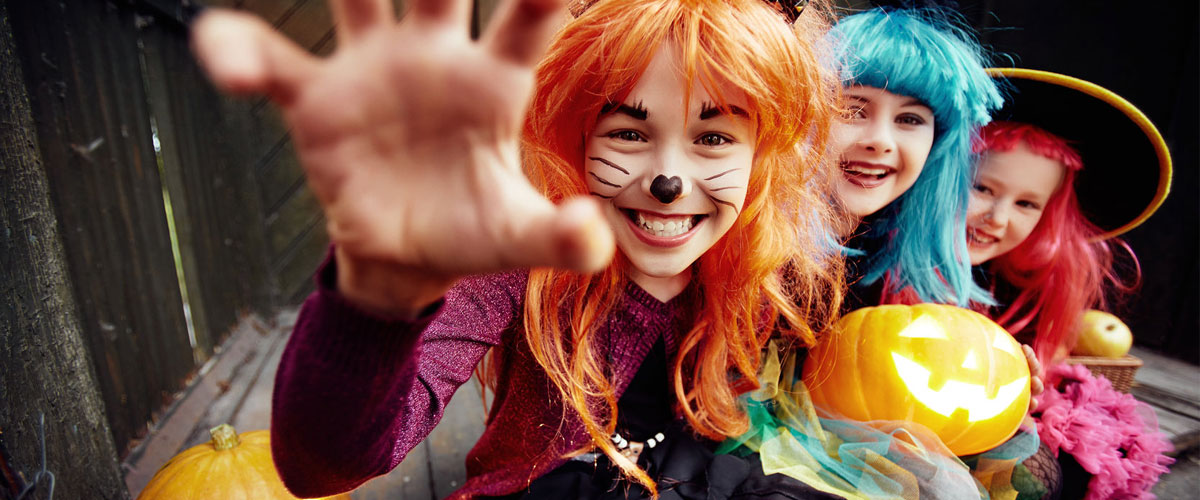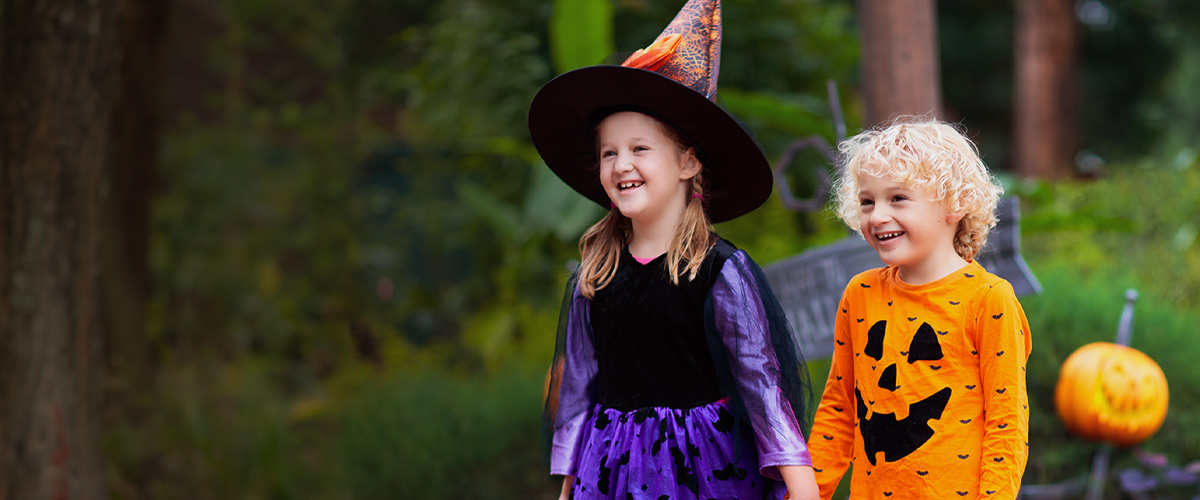I basically spent my youth rolling my eyes at the alarmists who spoke against the influence of mainstream culture.
There was He-Man, a redundantly-named 80s cartoon superhero with a haircut resembling a Scandinavian schoolgirl, who would spend 23 minutes declaring himself the master of the universe and invoking magic, sorcery and spells. There were depressing, stringy-haired grunge bands, like Nirvana, who stared at their shoes while mumbling bleak songs about depression, hating life and ending it all. By the time I was older, a young wizard named Harry Potter had conquered the world by turning witchcraft and black magic into a fun, coming-of-age experience that bonded friends together, somehow convincing everyone that evil could be used for good. Even though I grew up in a Christian family with parents who were very careful about what they let me listen to or watch, I laughed at conservative people who were so afraid of reality that they hid from it.
Years later, I realised that being entertained by the dark things of this world wasn’t a sign of being enlightened. It was a sign of compromise. And the church had bought into it.
“ … why don’t we simply have nothing to do with this type of thing, even if the whole world is doing it?”
Dragging the Darkness Along
After preaching at a youth camp recently, I was informed that one of the speakers earlier in the day had used a popular horror series (which none of the high-schoolers at that camp should ever have been watching) as his main analogy to explain the Word of God. I’ve also seen a globally-popular youth group post a clip that played on the name ‘Holy Ghost’ to create a comedy clip in which they scared each other in the dark. They would see it as harmless fun, but it’s hard to ignore the reality that the whole message of the gospel seems to gradually have been inverted. Instead of calling each other out of the darkness and into the light, many seem to be pretending that we can simply drag the darkness along with us as we try to be the light of the world.
Which brings us to Halloween.
Mainstream or Upstream?
Some traditions, like Easter, are fundamentally healthy, biblical and important to observe, with slight oddities and unnecessary elements that should be ignored. Other calendar milestones, like Christmas, are still able to be redeemed and celebrated in a godly way but hold more significant trappings, dangers and divisive practices. But some mainstream events, like Halloween, have absolutely nothing in them that is historically beneficial or spiritually uplifting. It’s dressed up as a costumes-and-candy adventure, but underneath the fun, there are all kinds of associations with death and darkness. And so every year church leaders feel compelled to trot out the same concerns and warnings about medieval practices, ancient rituals and the worship of the dead. But it’s hard to ignore the bigger question: why don’t we simply have nothing to do with this type of thing, even if the whole world is doing it?
Out With The Old, In With The New
From the moment Jesus calls a person, He calls them not only into a new life but also out of an old one: out of sin, out of darkness, out of their previous identity, out of a destructive lifestyle, out of the flow of worldly thinking, out of selfish ambition and out of the pleasures of the flesh. He did it with the disciples, Zacchaeus, Paul, even tried to do it with the rich young ruler, and He does it with every single person who bows their knee to Him. It’s not only the way that we enter the kingdom of God; it’s also the way that we continue to live as citizens of the kingdom of God. We’ve died to our old lives, after all, and dead people don’t have an awful lot of rights to hold on to. We belong to a new Master. “The old has gone, the new has come!” marveled Paul in 2 Corinthians 5:17 (NIV), surely thinking back to his own experience of losing everything he had but gaining life. Gaining Jesus. But to gain the life that Jesus gave him, he had to be prepared to lose the one he had. He wasn’t just a prisoner for Christ – he was a prisoner of Christ.
Yet today, that very concept – which Jesus could not have been more clear about – is one of the most widely resisted.
Saying ‘No’ to Worldiness
There’s something at stake during Halloween, and it’s got nothing to do with running around a neighbourhood collecting sweets. It’s to do with the word “no”. Our children – those who will have to take up the call of Jesus in their generation – need to see us saying no to worldliness. No, we won’t be part of this, because it celebrates fear, trickery, darkness and death. No, we won’t create some silly alternative so that we have something to do on the same night. No, we won’t worry that others are doing it. No, we don’t feel like we’re missing out. No, we’re not concerned that our children seem to be having less fun than others. No, we don’t care what people think. That’s an unapologetic disassociation, and there just isn’t enough of it anymore.
There are some traditions and festivals that can be harmless and pure, but Halloween isn’t one of them. It’s too historically steeped in the occult and death to be redeemed or repurposed. And so the youngest generation does not need to see a group of people who’ll bend over backwards to give them all the same chills and thrills as the rest of the world, it needs to see adults with some backbone, some conviction and some proper non-negotiable boundaries that aren’t up for debate. Our kids need to see that we’re not putting up with ungodly things, no matter how nicely they’re packaged.
“ … we have to climb out of the swirling riptide of popular culture in order to see it for what it is.”
Take a Stand for Jesus
When the gospel arrived in Ephesus, that bustling city full of chaos and witchcraft, a funny thing happened. A botched exorcism by a team of brothers led to a demon confessing that it knew Jesus, which in turn led to great fear and respect for His name. “Many of those who believed now came and openly confessed their evil deeds,” wrote Luke in Acts 19:18-20 (NIV). “A number who had practiced sorcery brought their scrolls together and burned them publicly. When they calculated the value of the scrolls, the total came to fifty thousand drachmas. In this way the word of the Lord spread widely and grew in power.” There was a complete renouncing of evil, an irrevocable and public rejection of it, and it came at an incredibly high cost – the equivalent of working five days a week for two hundred years. We’re told that the Word of the Lord spread and grew through this extravagant and dramatic act of saying “no”. They didn’t keep their sorcery scrolls in storage or create a set of acceptable alternatives; they got rid of them all. Forever. They wanted nothing to do with them. And that’s what we need today.
All or Nothing
I’ve heard a few stories from the so-called ‘boomer’ generation, who came of age in the 60s and 70s, about what would happen when they got born again. In something similar to those Ephesian converts, they would have a bonfire, burning their old vinyl albums. That music, which was often openly demonic, had influenced them badly and they wanted to be rid of it as they started a new life in Jesus. The fact that their actions seem so extreme today is an indication of how the approach has been modified. Many times, a young person is told that they can still continue to be exactly like the rest of the world, enjoying what they enjoy, and just add Jesus. But this isn’t true. There must be a separation, and that takes courage, clarity and conviction.
“ … instead of calling each other out of the darkness and into the light, many seem to be pretending that we can simply drag the darkness along with us …”
The Battle Against Compromise
Taking aim at a fun event like Halloween may seem like a cheap shot to some, but there’s something bigger going on. It’s a battle for how we see our place in this world, how we understand the dynamics of Christian freedom, and what type of example we are going to set for the next generation. But we have to climb out of the swirling riptide of popular culture in order to see it for what it is.
“Come out of her, my people,” says God in Revelation 18:4 (NIV) as Babylon collapses, “so that you will not share in her sins …” As Christians who understand the costly mercy of God, we should be the most loving towards all people but the most afraid of sin that so easily entangles. We should be the slowest to judge others but the quickest to judge ourselves, because our hearts still bend towards the kingdom of this world and we know that we now belong to another. And we should be the most eager to live in fear – not the giddy fear of ghosts, monsters or demons, but the sober fear of the God of holiness, love and grace, who came into this world so that He could break the power of its hold on us.
This article was reviewed on 26 October 2021. It was originally published on the Four12 Global website on 27 October 2020.











